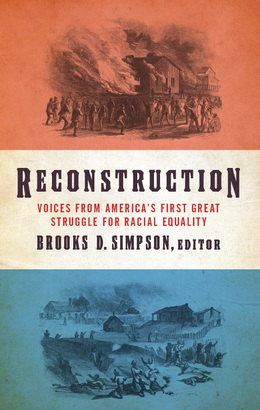What was Reconstruction, and why did it represent such a sharp break with America’s past?
In a talk in New York City last month, historian Eric Foner offered some blunt truths about nineteenth-century America that help explain why the twelve years following the end of the Civil War were such a bold political and social experiment.
Eric Foner: “Slavery was not going away” (2:06)
DeWitt Clinton Professor of History at Columbia University, Foner is the author of Reconstruction: America’s Unfinished Revolution, 1863-1877 as well as, more recently, Gateway to Freedom: The Hidden History of the Underground Railroad (2015), and the editor of the Library of America volume Thomas Paine: Collected Writings. He delivered his talk at an event for Library of America’s new anthology Reconstruction: Voices from America’s First Great Struggle for Racial Equality, a collection of firsthand historical writings edited by Brooks D. Simpson.
In his conclusion, Foner touched on Reconstruction’s inescapable relevance to the present moment.
“Our history is not, as some people like to think, a straight line of greater and greater freedom, greater and greater rights,” he said, “but a much more complicated and much more interesting story of ups and downs, of rights gained, and then lost, that have to be fought for another day.”
Eric Foner: One lesson of Reconstruction (1:28)
Watch Eric Foner’s complete talk on Library of America’s YouTube channel.




